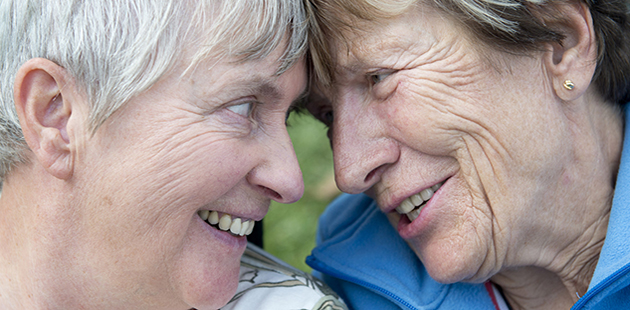 Major findings from Australia’s longest running regular survey into the health and wellbeing of lesbian, bisexual and queer (LBQ) women is set to be released at the upcoming LBQ Women’s Health Conference in Sydney this week.
Major findings from Australia’s longest running regular survey into the health and wellbeing of lesbian, bisexual and queer (LBQ) women is set to be released at the upcoming LBQ Women’s Health Conference in Sydney this week.
A collaborative project between ACON, NSW’s leading LGBTI health organisation, and the University of Sydney, the Sydney Women and Sexual Health (SWASH) survey is a comprehensive biennial snapshot on the health and wellbeing of LBQ women covering issues ranging from sexual and gender identity, sexual health, mental health, violence, tobacco and drug use, alcohol consumption, cancer screening behaviours and more.
Results from the 2016 SWASH survey will be presented at the only annual national summit on the health and wellbeing of LBQ women being held at the NSW Teachers Federation Conference Centre in Sydney from 13 – 14 July 2017.
This National Conference – hosted by ACON and VAC – is sponsored by the Cancer Institute NSW and NSW Health. Over 320 participants will attend the conference from almost every state and territory, where over 50 sessions will focus on diverse health issues for lesbian, bisexual and queer women, including women with diverse gender experiences and intersex status.
ACON Deputy CEO Karen Price said the insight into LBQ women’s health provided by SWASH is a primary means by which organisations such as ACON can structure and inform its response to segments of LGBTI communities that are often found out of the reach of mainstream messaging.
“ACON has made a core commitment to work closely with women from LGBTI communities to better understand and address their specific health issues. Since 1996 we have worked with our research partners on SWASH to develop a broad and systematic evidence base to support the development of health programs and policies,” said Ms Price.
“The difference between LBQ women’s health and that of the broader community is primarily influenced by social contexts and behaviours – how often the marginalisation and stigmatisation of our communities impacts our health. Many programs and services targeting women in the wider population have failed to resonate with LBQ women, and information gathered by SWASH provides a vital means by which specific messaging can be developed that reaches and connects with them.
“ACON health projects targeting LBQ women, including #TalkTouchTest and our tobacco-reduction campaign #SmokeFreeStillFierce, have all been informed by data collected by previous SWASH studies, along with many other aspects of ACON’s work on behalf of, and with LBQ women. These data are also informing aspects of the development of our cervical screening campaign – with the support of the Cancer Institute NSW.”
Speaking to the importance of SWASH in relation to LBQ women’s health, lead researcher Dr Julie Mooney-Somers (University of Sydney) said the survey provides valuable information that is often under-researched and missed.
“Australian epidemiological data on a range of health issues experienced by LBQ women remains inconsistent and the inclusion of properly worded sexuality and gender indicators in large epidemiological surveys remains patchy. SWASH provides a unique and important source of health-related information on Australian LBQ women,” said Dr Mooney-Somers.
“SWASH provides unparalleled insights into the health and wellbeing of LBQ women in Sydney and such important community-driven research has only been possible through successful partnerships between researchers, community organisations and of course, participants.”
For further information on the 2016 SWASH study you can view the factsheet here, or download the entire report here. The 2017 LBQ Women’s Health Conference is on 13 – 14 July at the NSW Teachers Federation Conference Centre in Surry Hills. For more information, visit: www.lbq.org.au for details.
